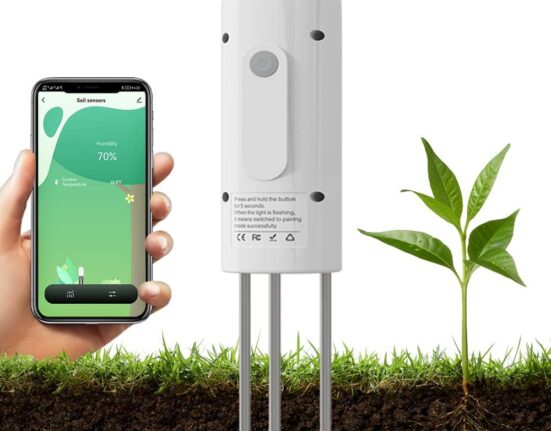In the serene embrace of an organic garden, where vibrant vegetables adn fragrant herbs flourish, the harmony of nature frequently enough hangs by a fragile thread. Pests, though a natural part of the ecosystem, can pose a meaningful threat to the bounty of our hard work and effort. As gardeners seek to cultivate their green spaces free from harmful chemicals, the quest for effective yet safe pest control solutions becomes paramount. This article delves into the best strategies for protecting organic gardens—balancing environmental stewardship with the practical needs of pest management. From age-old remedies rooted in tradition to innovative techniques that harness the power of nature, discover how to preserve the integrity of your garden while keeping unwanted visitors at bay. Join us as we explore the most effective pest control solutions, tailored specifically for the organic gardener dedicated to nurturing a thriving, enduring oasis.
Natural Pest Deterrents for Healthy Organic Gardens
Utilizing natural pest deterrents not only enhances the health of your organic garden but also promotes biodiversity. Various plants can serve dual purposes by repelling pests while adding beauty to your landscape. consider incorporating the following options into your garden:
- Marigolds: Their vibrant flowers emit a scent that deters aphids, nematodes, and other pests.
- Nasturtiums: Known for attracting aphids away from more vulnerable plants, these flowers act as a trap crop.
- Basil: Not only delicious, but it also repels flies and mosquitoes, offering a culinary twist to pest control.
In addition to companion planting, creating barriers and using homemade solutions can further safeguard your plants. Simple mixtures such as garlic spray or peppermint oil can effectively deter a variety of nuisances without chemicals.here’s a speedy recipe and application guide:
| Ingredients | Instructions |
|---|---|
| 1 cup Garlic cloves | Blend with water, strain, and mix with one tablespoon of soap. |
| 1 tablespoon peppermint oil | Combine with the garlic mixture and apply as a spray on affected plants. |

Essential Tools for a Holistic Pest Management Approach
to foster a thriving organic garden, employing the right tools is crucial for a comprehensive pest management strategy.These tools not only aid in pest control but also promote overall garden health and biodiversity. Key components include:
- Neem Oil: A natural pesticide derived from the seeds of the neem tree, effective against a variety of pests and diseases.
- Insecticidal Soap: A simple yet effective solution for soft-bodied insects like aphids and spider mites, made from natural ingredients.
- companion Planting Guides: Resources that help identify beneficial plant pairings, boosting pest resistance through natural means.
- Hand Tools: Essential implements such as trowels and pruning shears for close monitoring and manual pest removal.
Another essential aspect of holistic pest management lies in monitoring and maintaining garden ecosystems. Tools that assist in this endeavor include:
- Sticky Traps: Useful for identifying pest populations while minimizing disruption to beneficial insects.
- Beneficial Insect Releases: Resources for sourcing and releasing predatory insects like ladybugs and lacewings in your garden.
- Soil Test Kits: Critically important for understanding soil health, nutrient levels, and pH balance, ensuring optimal plant growth.
- Compost Bins: Facilitating nutrient recycling, promoting a balanced ecosystem that attracts the right organisms.

Top Organic Solutions for Common Garden pests
When dealing with pests in your organic garden, several natural solutions can make a significant difference. One of the most effective methods is to incorporate companion planting. Certain plants, like marigolds and basil, can deter pests naturally while promoting a healthy ecosystem. Additionally, introducing beneficial insects, such as ladybugs and lacewings, can definitely help strike a balance in your garden, keeping harmful pests at bay. Another organic approach is using neem oil, derived from the seeds of the neem tree. It acts as a powerful repellent and disrupts the life cycle of various pests without harming beneficial insects when applied correctly.
Additionally, homemade remedies can effectively control pest populations. For instance, a simple soap spray made from biodegradable soap mixed with water can tackle aphids and spider mites by suffocating them upon contact. Consider creating a garlic-and-pepper spray to deter a variety of insects; the strong smell and taste are unappealing to many pests. You can also utilize diatomaceous earth, which is a powder that works mechanically to damage the exoskeletons of insects while being safe for humans and pets. Combining these methods creates a layered defense, ensuring your organic garden thrives despite the threat of pests.

Creating a Pest-Resistant Garden: Practices for Sustainability
Creating a garden that naturally deters pests can be a rewarding endeavor for any organic gardener. By incorporating diverse plant species, you not only enhance the beauty of your garden but also create habitats for beneficial insects.consider companion planting, where certain plants are grown together to enhance growth or provide pest resistance. For example, marigolds are known to repel nematodes and other unwanted insects, while basil can definitely help protect tomatoes from thrips and whiteflies. Implementing these strategies not only minimizes pest issues but also fosters a more resilient ecosystem in your garden.
Moreover, practicing crop rotation is essential in maintaining soil health and reducing pest populations. By changing the type of crops grown in specific areas, you disrupt the life cycles of pests that thrive on specific plants. Additionally, using barriers such as row covers or netting can physically protect young plants from pests while still allowing sunlight and water to reach them. Incorporating natural repellents, like neem oil and diatomaceous earth, can also provide effective pest management without the toxicity frequently enough associated with conventional pesticides.
Concluding Remarks
In the intricate dance of nurturing organic gardens, pest control emerges as a crucial partner, ensuring your green oasis thrives in harmony with nature. As we explored the best solutions for tackling common garden pests,it becomes clear that a thoughtful approach—one that emphasizes safety,effectiveness,and sustainability—unlocks the full potential of your garden.
By harnessing natural deterrents, encouraging beneficial insects, and implementing preventive measures, you equip yourself with the tools to safeguard your plants without compromising their organic integrity. Remember, every garden is unique, and finding the right pest control strategy may take some experimentation and observation.
As you venture forward, may your efforts cultivate not only a thriving garden but also a deeper connection with the ecosystem around you. Embrace the beauty of nature’s balance, and may your organic garden flourish, free from harmful chemicals and full of life. Happy gardening!















Leave feedback about this